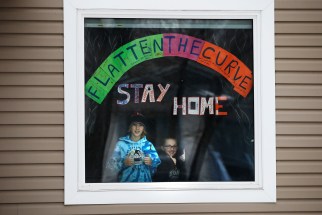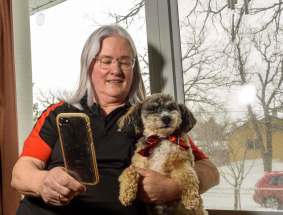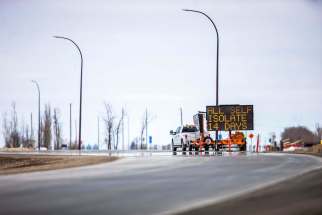Postcards from New York City … and New Zealand, and Thailand Expat Winnipeggers weigh in on living through pandemic abroad
Read this article for free:
or
Already have an account? Log in here »
To continue reading, please subscribe:
Monthly Digital Subscription
$0 for the first 4 weeks*
- Enjoy unlimited reading on winnipegfreepress.com
- Read the E-Edition, our digital replica newspaper
- Access News Break, our award-winning app
- Play interactive puzzles
*No charge for 4 weeks then price increases to the regular rate of $19.00 plus GST every four weeks. Offer available to new and qualified returning subscribers only. Cancel any time.
Monthly Digital Subscription
$4.75/week*
- Enjoy unlimited reading on winnipegfreepress.com
- Read the E-Edition, our digital replica newspaper
- Access News Break, our award-winning app
- Play interactive puzzles
*Billed as $19 plus GST every four weeks. Cancel any time.
To continue reading, please subscribe:
Add Free Press access to your Brandon Sun subscription for only an additional
$1 for the first 4 weeks*
*Your next subscription payment will increase by $1.00 and you will be charged $16.99 plus GST for four weeks. After four weeks, your payment will increase to $23.99 plus GST every four weeks.
Read unlimited articles for free today:
or
Already have an account? Log in here »
Hey there, time traveller!
This article was published 26/03/2020 (2089 days ago), so information in it may no longer be current.
For some time, New York City has always been the choice locale for apocalypse movies. The practice relies on a worldwide familiarity with the city to raise the stakes of whatever destruction is rained down upon it, from alien invasion (The Avengers) to super-freezing temperatures (The Day After Tomorrow) to … a devastating pandemic (I Am Legend).
Reading online to students
“One thing I have been doing during this crazy time is recording myself reading books and posting them online,” says Tara Westwood. “Typically during the year, I go to a public school here in New York City when I’m not on a set, or doing a play and I read to students one day a week, through a SAG (Screen Actors Guild) program called BookPals.
“Obviously the schools are closed now, so I thought it would be a great idea to be able to still have that opportunity with them, where they could sit and watch me read to them, and their parents or caregivers could take a much needed break for a few minutes,” she says.
Westwood has enlisted friends such as John Leguizamo and Jessica Hecht (Breaking Bad) on the project.
“I send the videos to the public school I usually work with and they send them to the students. Plus I’ve posted them online, hoping to get this wider spread beyond the classes I work with here.”
The YouTube channel Let’s All Read is found here.
Right now, the city, which packs in an estimated 10,800 residents per square kilometre (according to data from the U.S. Census Bureau) is the epicentre of the COVID-19 outbreak in the U.S.
As of Thursday afternoon, there have been at least 21,393 cases in New York City, and the virus has already claimed at least 280 lives, according to the New York Intelligencer. The state has the largest number — 37,258 confirmed cases — a little less than half of the 69,000 confirmed cases all across the U.S.
According to a New York Times report, the city accounts for five per cent of COVID-19 cases globally. With the city currently running out of space to store the bodies of people who have died, the situation in the Big Apple is getting extremely grim here in the real world.
“Look at us today,” New York Gov. Andrew Cuomo said at a recent press conference. “Where we are today, you will be in four weeks or five weeks or six weeks. We are your future.”
The Free Press touched base with two former Manitobans currently living in the big, bruised city. We also spoke to two other former Winnipeggers living in New Zealand and Thailand to see how they’re coping in those countries.
Alix Sobler
Playwright and freelance writer Sobler, 41, is in fact a native New Yorker, who moved to Winnipeg for 10 years and ultimately returned to her birthplace with her Winnipegger husband Jason Neufeld, who works in theatre administration (“Broadway-adjacent, you might say,” says Sobler).
They reside, with their cats Sophie and Wyatt (who was dramatically rescued from the rubble when the couple’s Winnipeg condo building burned down 2011), in a cosy one-bedroom in Inwood, on the very northern tip of Manhattan. “It’s the 207 stop on the A train, the last stop on the blue line,” Sobler says.
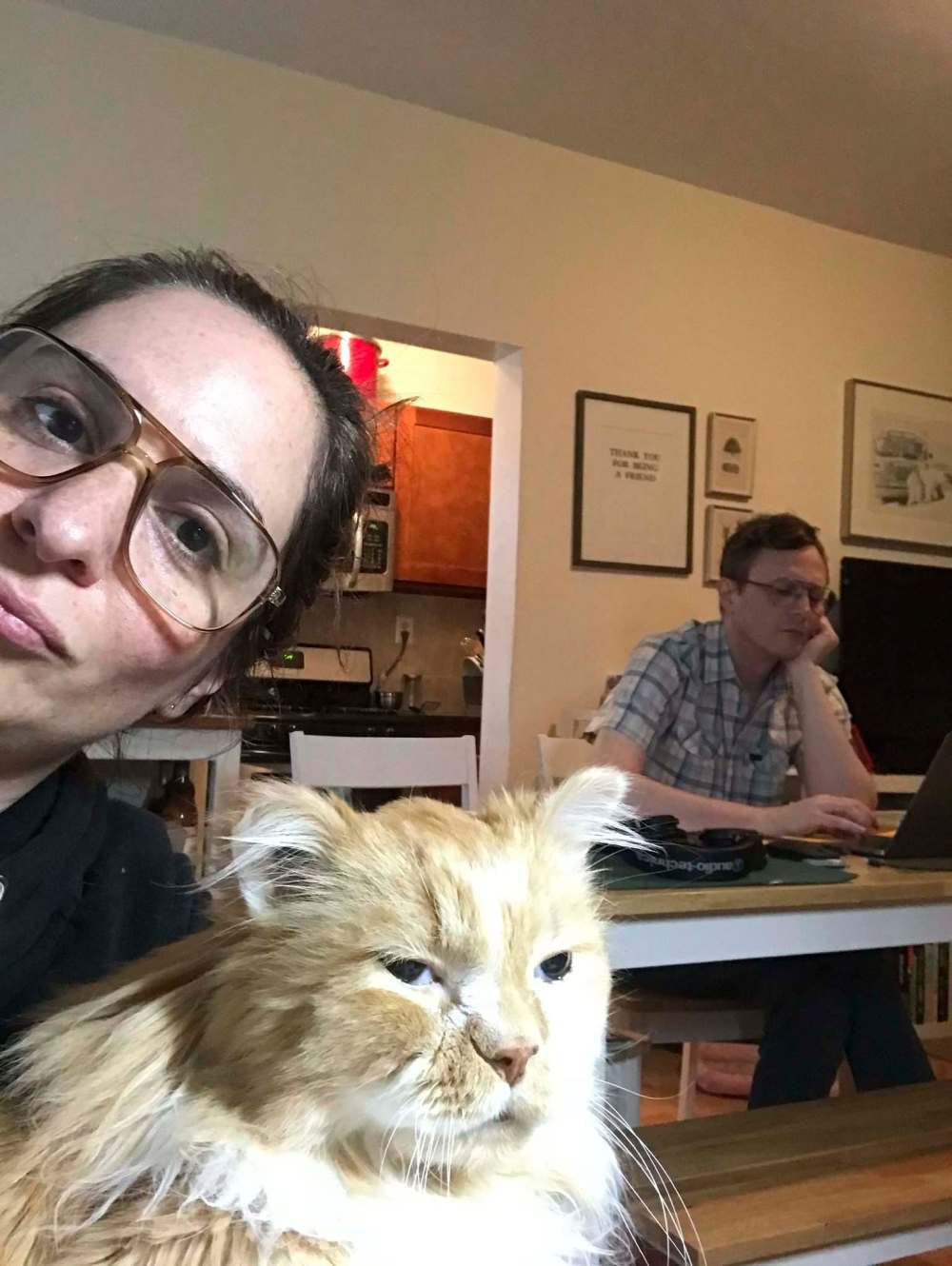
Both are isolating at home, she says.
“Working from home is sort of my natural state of being,” Sobler says. “I do have a part-time job that I usually go downtown for twice a week, but that has shifted to be remote. My husband is also working from home right now. He is lucky to still have work. We are definitely sharing the space right now! Luckily we both have stuff to do and are respectful of each other’s time and space.”
So far, the pandemic’s impact on Sobler has been largely professional.
“I was looking at one of the busiest springs of my life in January, and now everything has been cancelled,” she says. “A production I had in Toronto that was supposed to open in April has been rescheduled for 2021. I had three new play workshops scheduled — one in D.C., one in Cincinnati and one in L.A. Needless to say, none of them are going forward. One theatre had one of my plays on a short list to consider for next season, but that is off the table now to make room for shows that had to be postponed.
“All of this is disappointing of course, but I know many people whose productions have been cancelled outright, or shows that played to two audiences and were forced to close and that is just so heartbreaking to me,” she says. “So much time and love goes into every production, so many years of work and sacrifice. I just ache for my fellow artists who have been hit by this.”
“It’s very nerve-racking to go outside for me. I bring my hand sanitzer and use it constantly, even though I avoid touching things.” – Alix Sobler
Life in the city has presented challenges in the wake of the epidemic.
“We live very close to a park — Inwood Hill Park — and have been spending a lot of time in there when we can,” she says. “It’s very nerve-racking to go outside for me. I bring my hand sanitzer and use it constantly, even though I avoid touching things.
“I am Skyping with my family and friends a lot, but there is not that much to say when you spend all day inside,” she says. “We have subscribed to a food delivery service for dinners for a few years, so that has been really good at this time.”
Sobler says she finds the transformation of the city in the past few weeks “incredibly bizarre.
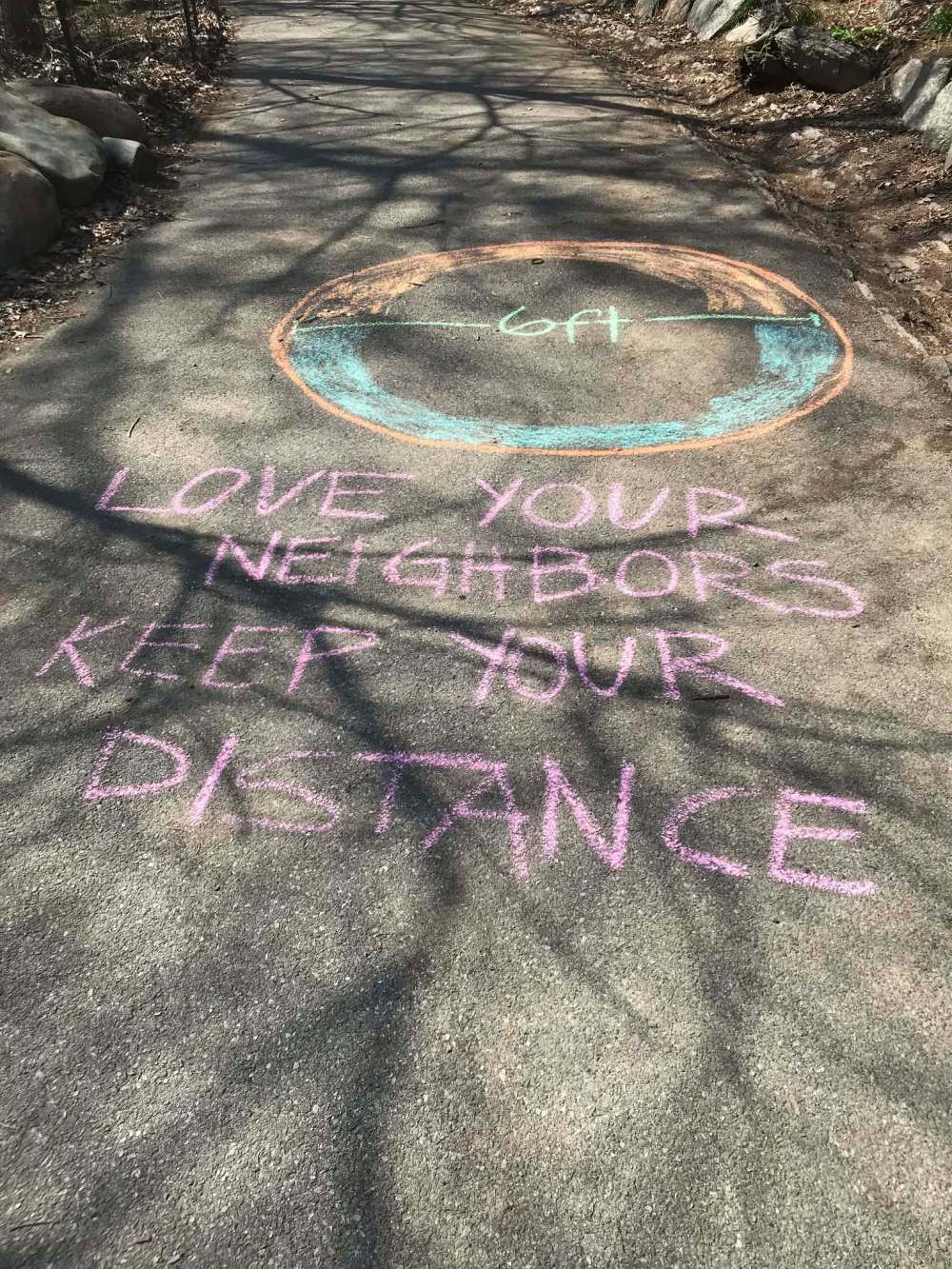
“As a theatre person, it all really hit home when Broadway went dark,” she says. “That just never happens. Even after 9/11, I think it was only dark for like three days.
“That shook me to the core,” she says. “It’s a very weird feeling to not know when I will be in the same room with my friends or family again.
“Passover is coming up and it’s not even an issue: We’re all just staying home,” she says. “For me, the anxiety has been the hardest part so far. I worry about getting sick, about staying afloat economically, about my community and the industry as a whole.
“Where is this all leading? How long will this go on? No one has answers, and it’s really scary,” she says. “Now friends and colleagues are starting to test positive, and that’s terrifying. I am sure there are many more who are sick or have been without us knowing.”
While New Yorkers have often been characterized as rude, a crisis tends to bring out the best in her fellow New Yorkers, Sobler says.
“In general, people are pretty thoughtful and concerned for one another,” she says. “New Yorkers are actually very nice all the time, they just take less time with the pleasantries, so they can sometimes sound harsh, especially to Manitobans.
“There are some people being reckless and either not paying attention or ignoring the best advice to stay apart from each other and not gather in groups, but for the most part, people are staying calm and going about their business,” she says. “I am on several neighbourhood boards and people are all asking what they can do for each other, how they can help their elderly neighbours, what they can do to support medical staff.
“A lot of people I know are sewing masks to send to hospitals,” she says. “Also, from what I hear, the animals shelters are out of foster animals. Every one has found a home,” she says.
“I used to work at the Winnipeg Humane Society, and that would have been a dream come true,” she says. “It heartens me to think of that tiny silver lining.”
— Randall King
Tara Westwood
The actress (who most recently starred in the Manitoba-lensed horror movie The Grudge) has lived in New York City for longer than she lived in Manitoba, where she was brought up on a farm in the RM of St. Andrews with her brothers Trevor and famed Blue Bomber Troy.
“Ever since I moved to New York City in 1992, I’ve lived in one area and that’s the Upper West Side. I’ve been in different locations on the UWS, but I love the lower buildings, the fact it feels more family-oriented and our two great parks; Riverside and Central.”
Westwood lives with her boyfriend Andrew. Her two grown sons Jackson and Willy are out of the city, and she finds that a mixed blessing.
“I’m extremely grateful for that right now,” Westwood says. “Jackson is living and working as a software engineer in Dallas and I’m very thankful that he has a job where he can work remotely, so he is at home there.
“My son Willy and I had to have quite a conversation about it and ultimately I told him that the same reason why I want him here — because I love him so much — is the exact reason why he shouldn’t come home,” she says. “Though his college in Vermont is currently closed and all of the classes are online, the city he lives in has no Coronavirus cases, so to put him on a plane or a bus to bring him home to where we know is going to get hit hard, obviously isn’t the right choice.”
“My son Willy and I had to have quite a conversation about it and ultimately I told him that the same reason why I want him here– because I love him so much — is the exact reason why he shouldn’t come home.” – Tara Westwood
Over the past few weeks, Westwood’s lifestyle has changed radically from a penchant for going out six nights a week.
“Typically, we really take advantage of New York City, but I’ve always thought that a few more nights home a week would be nice and now I am getting my wish, in that weird way,” she says. “We have been staying in every night, yet trying to support local small businesses by having food delivered or ordering it and picking it up.
“We ordered last night from a place that had a very good setup, in that they only allowed four people in the restaurant at one time and they had a table by the door where they put the takeout bags, so the staff, who all had masks on, would not actually come closer than six feet to the customers.
“The government has said it’s best to not eat food that isn’t cooked, like salads and sandwiches, when you order out, so we are following those rules too.”
Even a walk in the park has become a source of anxiety.
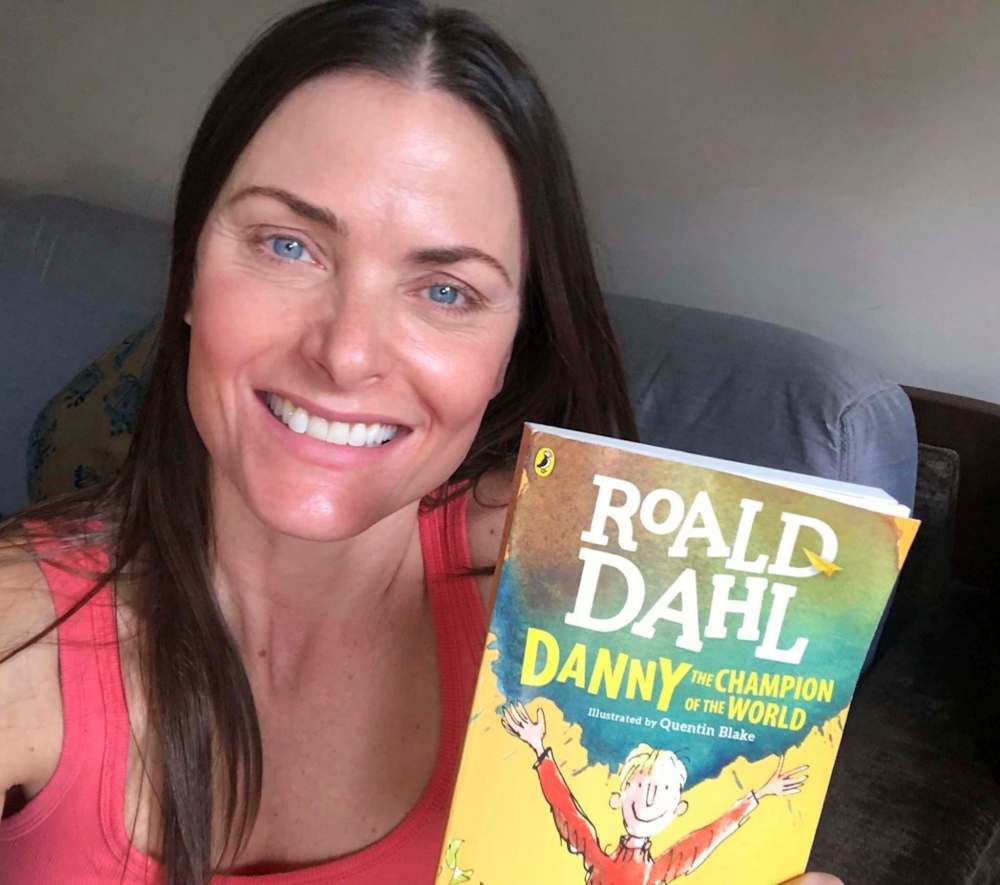
“Yesterday, it was sunny and warm and I went to go for a walk in Central Park and to be honest I didn’t feel that it was safe,” Westwood says. “People were too close to each other on the roads and walking paths, so I didn’t do that.
“However today it was raining outside, so the streets were really empty in a way that you never see them and was surreal,” she says. “We took our bikes and rode downtown on the bike path, which is along the West Side Highway and have never seen it so desolate.
“I felt safe doing it because no one else was crazy enough to be out when it was so cold and pouring rain,” she says. “But it was a New York City I’ve never seen in all of my years here.
“I went shopping for groceries the day after all of the sporting events and Broadway closed down and it was shocking,” she says. “I felt like I’d stepped into a Will Smith movie set where it was the end of the world, because the shelves were empty,” she says. “Nothing has been frightening yet, but I do fear what will happen because the economy is going to be hit so hard and during those times, muggings and break-ins always go on the rise. And many businesses, I fear, will have to close because of this.
“All of that said, people are looking at each other and giving nods in that friendly way,” Westwood says. “That only happens in moments like this … or the weeks after 9/11.”
— Randall King
Aislinn Richards, Chiang Mai, Thailand
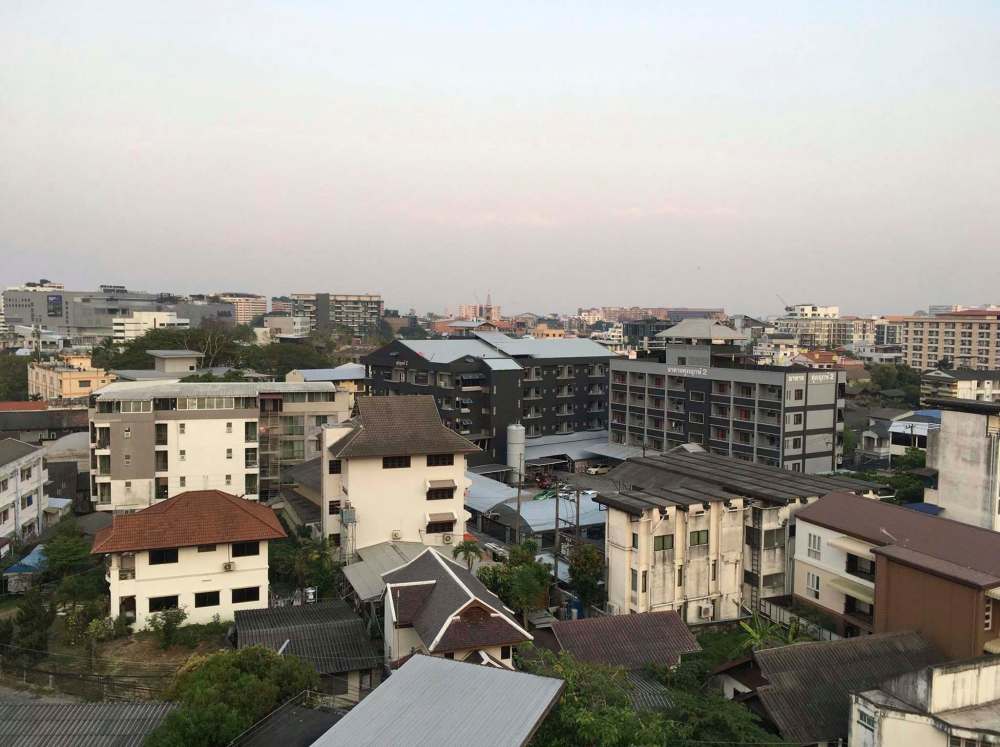
The past few weeks spent dealing with coronavirus have been like riding waves for Aislinn Richards, a former Winnipegger who is currently working as a teacher in Chiang Mai, Thailand.
The first wave was after the winter break. The student population at Richards’ school is 90 per cent Chinese, and many returning students had to self-isolate and provide a doctor’s note before they could come back to classes. Staff and students had to get their temperature checked twice a day, and all big school functions were cancelled.
“We were well aware of the virus, and dealing with it through school protocols. That was a really stressful initial time,” she says.
“Then when that wave had passed, we kind of thought that we had ridden it out, and things could get back to ‘normal’, which they mostly did for a few weeks. We’ve been hand washing, mask wearing, and avoiding busy places, since January. To get into a lot of places you need to get your temperature checked.”
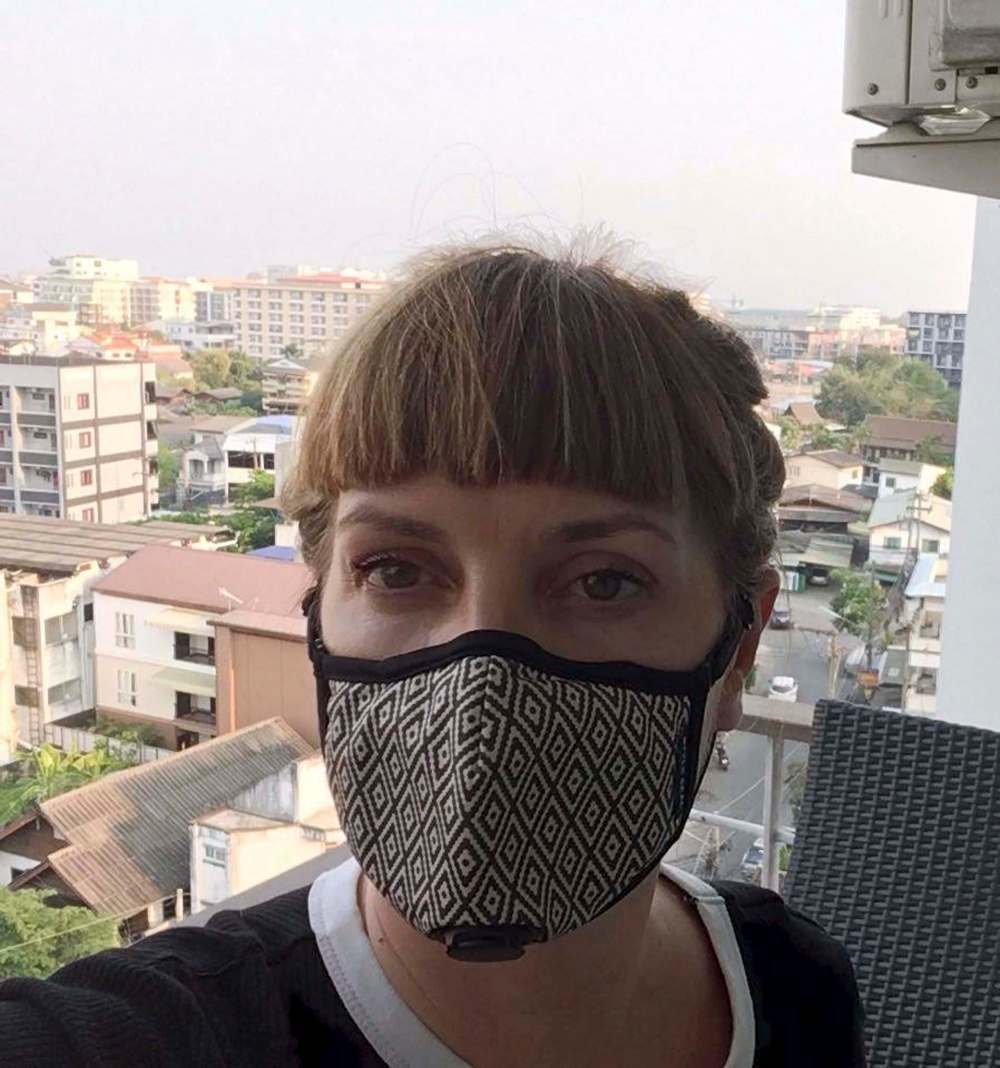
Over the past couple weeks, however, things have ramped up again — and quickly — as Thailand saw a surge of new cases of the virus in March. Schools were shut down and Richards began distance teaching.
The biggest challenge, she says, has been the isolation. Richards was living in Egypt during the revolution of 2011, so she’s familiar with the anxieties of living abroad during a crisis.
“But the difference then was people and teachers banded together, and now of course, we all need to stay apart,” she says. “A lot of the teachers that I work with live alone, including myself, and that’s just really hard during times like this.”
Then there’s also the uncertainty of when she’ll be able to go home.
“I had flights booked home, twice, and they both got cancelled, which has been a real whirlwind of anxiety and emotion,” she says.
Still, Richards is remaining hopeful.
“I had flights booked home, twice, and they both got cancelled, which has been a real whirlwind of anxiety and emotion.” – Aislinn Richards
“I have been trying to see the positives, and there are positives,” she says.
Lots of family and friends in Winnipeg have been checking in on her, which she says helps her feel more connected. (She’s also learning TikTok to virtually bond with her 12-year-old niece.) Her friendships with her fellow intentional teachers, who now live in Shanghai, Berlin, Cairo, and Arusha-Tanzania, have also been a vital support system.
“We all feel the same anxieties about living away from home during these kind of times. It’s a unique perspective and situation, so I’m glad we have each other,” she says.
“I am overwhelmed and honoured to be a teacher at this time, and all the teacher support groups and help groups for distance learning at this time. It’s a really nice community to be a part of. It is also great that I can stay connected to my students, and hopefully help them have some sense of normalcy and consistency in their life. I teach kindergarten at the moment, and it’s important to me to try to be there to support the kids emotionally.”
As for her friends and family back home, Richards doesn’t want them to feel “extra worried” about her.
“The health care here is good. I am taking good care of myself and being safe. I am trying to take things one day at a time and not get overwhelmed. And most of all, thank you for all the support and I will see all very soon.”
— Jen Zoratti
Cara Hill, New Zealand
Winnipegger Cara Hill has been living in New Zealand for the last decade.
On the day she spoke with the Free Press, the country had 283 confirmed and probable cases of COVID-19 and was beginning a four-week lockdown to stop the spread of the virus. All residents are now required to stay in their homes, save for grocery shopping, accessing medical services and outdoor exercising with strict social distancing in place.
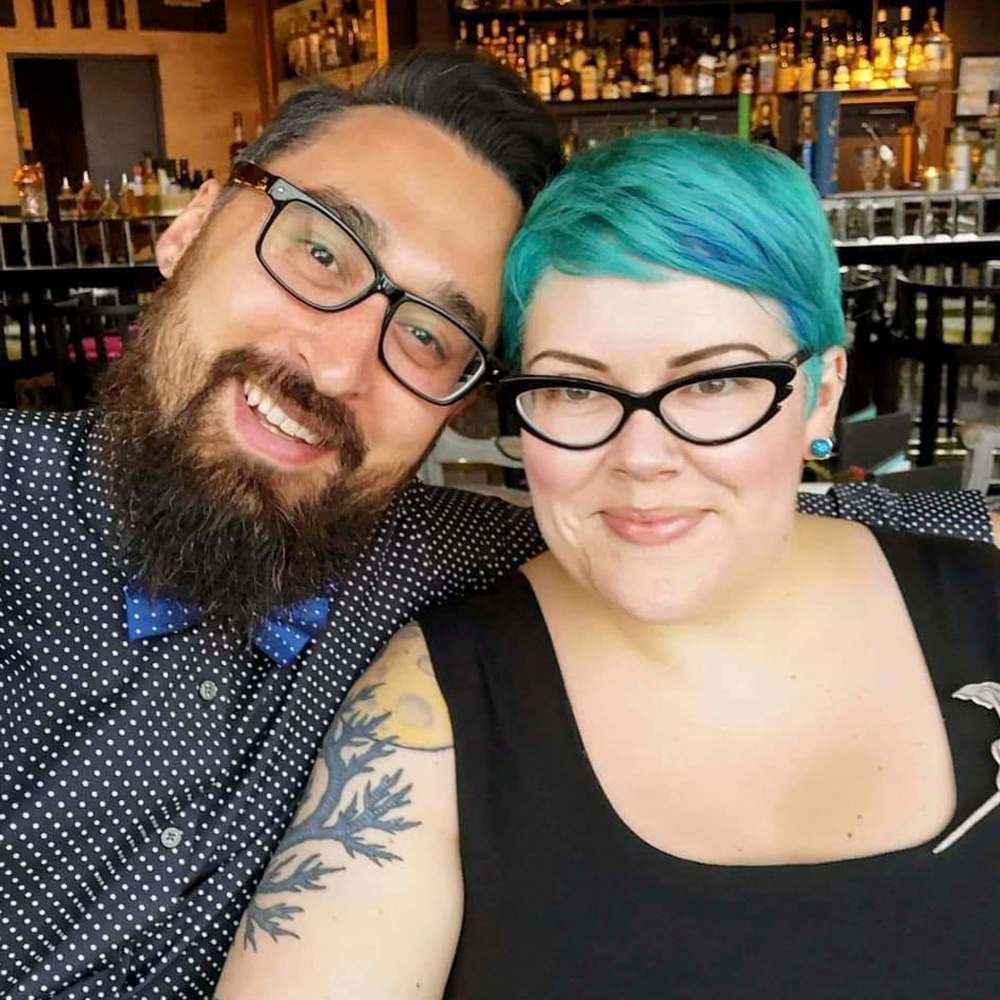
“I find it kind of a relief that they’re taking it so seriously and making such a decisive move to shut down the economy for a month so we can get in front of this and not have what’s happened in other countries around the world,” Hill says, adding that she has been impressed by the leadership of New Zealand Prime Minister Jacinda Ardern.
This is the third major crisis Ardern has navigated since being elected in 2017 — the first was the 2019 Christchurch mosque shooting, in which 51 people died; and the second was the White Island volcano eruption last December.
Hill and her husband, Samson Ootoowak, live in Wellington, a city of more than 200,000 people on the southern tip of New Zealand’s north island. Aside from close quarters and generalized anxiety about the pandemic, the pair are comfortable and able to continue working as web designers during the lockdown.
“We live in a quite small apartment, so just staying inside and both working in the same space will be a bit challenging,” she says.
Hill’s parents and brother still live in Winnipeg and she’s been in contact with them via text and Skype for the last few weeks.
“(My parents) are over 70 and they’re already in that age group that is more susceptible, but thankfully they’re taking it quite seriously,” she says. “I definitely don’t like being so far from my family, although if I was in Winnipeg I wouldn’t be able to see them anyways because I’d have to self isolate.”
Before the pandemic, Hill and Ootoowak, who is from Nunavut, were planning to move to Europe this year before coming back to Canada. Those plans have been put on hold for the foreseeable future.
— Eva Wasney

In a way, Randall King was born into the entertainment beat.


Jen Zoratti is a Winnipeg Free Press columnist and author of the newsletter, NEXT, a weekly look towards a post-pandemic future.
Our newsroom depends on a growing audience of readers to power our journalism. If you are not a paid reader, please consider becoming a subscriber.
Our newsroom depends on its audience of readers to power our journalism. Thank you for your support.
History
Updated on Friday, March 27, 2020 6:55 PM CDT: removes quote about curfew and rumour of lockdown in Chiang Mai


